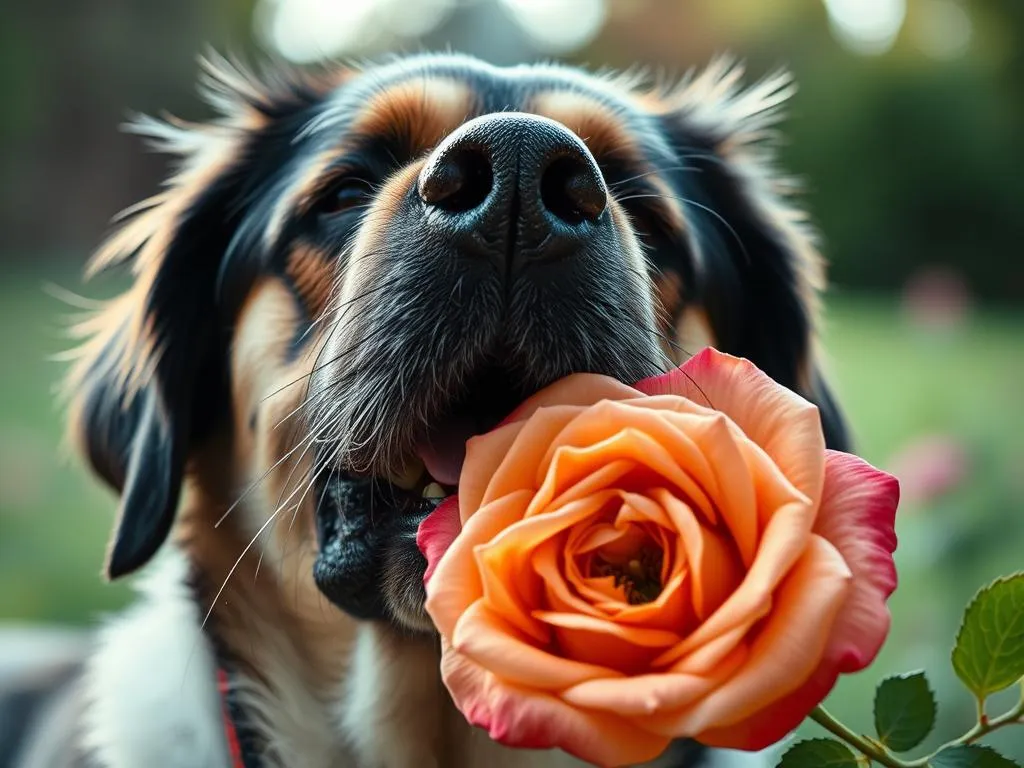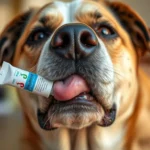
Introduction
Dog health care is a critical aspect of responsible pet ownership. As loving companions, our dogs often explore their surroundings, sometimes consuming non-food items. One common scenario that many dog owners face is the concern of my dog ate a rose. This situation can be alarming, especially when it comes to understanding the risks and immediate actions to take.
In this article, we’ll delve into the potential dangers associated with dogs consuming roses, how to recognize symptoms of distress, and what steps you can take to ensure your pet’s health and safety. It’s essential for pet owners to be proactive in their dog’s health care, especially when it comes to preventing accidental ingestions of harmful plants.
Understanding the Risks of Dogs Eating Roses
Common Plants Toxic to Dogs
Dogs are naturally curious creatures, and their exploratory nature can lead them to munch on various plants, some of which can be toxic. While roses are not classified as highly toxic, they can still pose risks due to their thorns and the possibility of pesticide exposure. Here’s a list of some common plants that are known to be toxic to dogs:
- Azaleas
- Tulips
- Lily of the Valley
- Oleander
- Sago Palm
Roses belong to the family Rosaceae and are generally safe in small amounts. However, the my dog ate a rose scenario may lead to complications, especially if the dog consumes larger quantities or if the plant has been treated with chemicals.
Symptoms of Rose Ingestion
Recognizing the symptoms of plant ingestion is crucial for ensuring your dog’s well-being. After your dog consumes a rose, watch for the following potential symptoms:
- Vomiting
- Diarrhea
- Lethargy
- Loss of appetite
- Abdominal pain
- Excessive drooling
Symptoms can appear anywhere from a few minutes to several hours after ingestion. It’s essential to monitor your dog closely during this time, especially if they exhibit any concerning signs.
Factors Influencing Toxicity
The level of toxicity can vary based on several factors:
- Size of the Dog: Smaller dogs are more susceptible to adverse effects than larger breeds.
- Amount Consumed: A few petals may not cause significant harm, but consuming leaves or stems, especially if they have thorns, can lead to more severe reactions.
- Individual Sensitivities: Just like humans, dogs can have unique sensitivities to different substances. Some might react more strongly to the ingestion of roses than others.
Immediate Actions to Take
Assess the Situation
When faced with the situation of my dog ate a rose, the first step is to assess what your dog has consumed. Check whether they ate just the petals, leaves, or if they also consumed thorns. This information will be vital when communicating with a veterinarian.
Next, observe your dog for any immediate symptoms. If they seem fine, it might be a relief, but continue to monitor them closely for a while.
Contacting a Veterinarian
If you’re unsure about the severity of the situation or if your dog is showing symptoms, it’s crucial to seek professional help. Contact your veterinarian or a local animal poison control hotline. Provide them with the following information:
- Size and weight of your dog
- Type and amount of rose consumed
- Any symptoms your dog is exhibiting
This information will help the vet determine the appropriate course of action.
Home Remedies and First Aid
While it can be tempting to try home remedies, it’s critical to consult your vet before administering any treatments. Some common suggestions that might be mentioned include:
- Monitoring hydration: Ensure your dog has access to fresh water, especially if they are experiencing vomiting or diarrhea.
- Diet modification: If your dog seems to have mild symptoms, a bland diet like boiled chicken and rice might be recommended, but only under veterinary guidance.
It is essential to avoid inducing vomiting without professional advice, as this can sometimes worsen the situation.
Long-Term Health Considerations
Preventing Future Incidents
To avoid the stress of my dog ate a rose in the future, consider dog-proofing your garden. Here are some practical tips:
- Fencing: Install a fence around your garden to limit your dog’s access to potentially harmful plants.
- Plant Selection: Opt for dog-safe plants and flowers, such as marigolds, sunflowers, and snapdragons.
- Training: Teach your dog commands such as “leave it” to discourage them from eating non-food items.
Regular Health Check-ups
Routine veterinary visits are crucial for your dog’s long-term health. During these visits, your vet can monitor your dog’s overall well-being and provide vaccinations and preventive care tailored to their needs. Regular check-ups can also help catch potential health issues early, ensuring your dog remains happy and healthy.
Understanding Your Dog’s Diet
A balanced diet plays a vital role in your dog’s health. Ensure you’re providing high-quality dog food that meets their nutritional requirements. Additionally, consider safe treats and foods to offer, keeping in mind that some human foods can also be harmful. Always check if a food item is safe before offering it to your dog.
Resources for Dog Owners
Poison Control Hotlines
It’s a good idea to have contact information for poison control hotlines readily available. These resources can provide immediate assistance and guidance if you suspect your dog has ingested something harmful. Here are some key resources:
- ASPCA Animal Poison Control: 1-888-426-4435
- Pet Poison Helpline: 1-800-213-6680
Trusted Veterinary Resources
For further reading on dog health care, consider checking out trusted veterinary resources. These can include:
- Veterinary Websites: Look for those that specialize in pet health and safety.
- Books: Seek out books authored by veterinarians or pet care experts that can provide in-depth information on dog care.
Conclusion
In conclusion, knowing what to do if my dog ate a rose can make a significant difference in your pet’s health and safety. From understanding the risks associated with rose ingestion to knowing the immediate actions to take, being informed is key. Regular health check-ups and a proactive approach to dog care will help ensure your furry friend stays healthy and happy for years to come. Stay informed about your pet’s well-being, and don’t hesitate to seek professional help when in doubt. Your dog relies on you for their health and safety, making your role as a responsible pet owner all the more essential.









